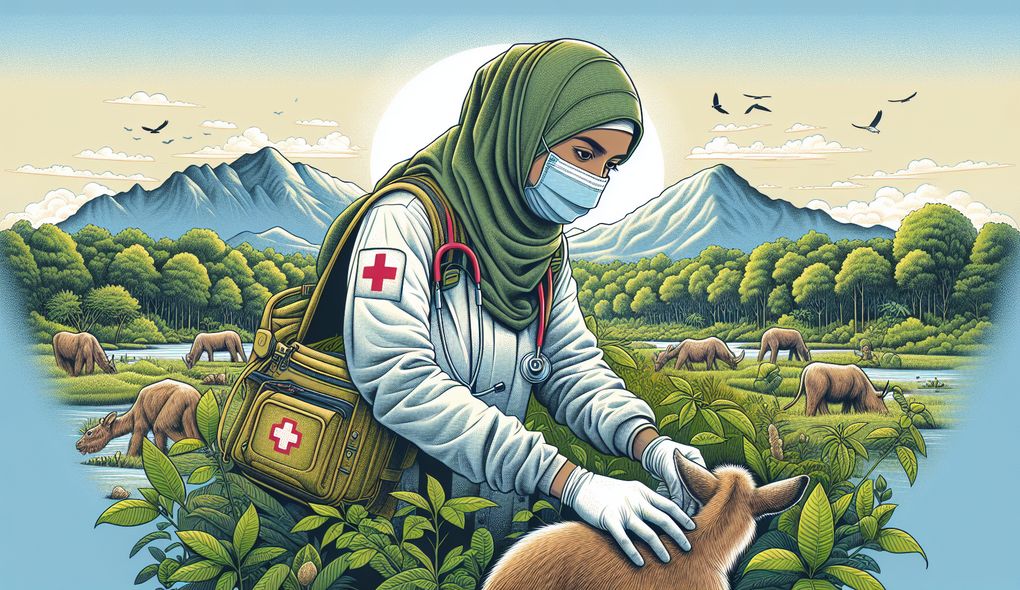Have you provided telemedicine services when on-site medical care was not possible?
SENIOR LEVEL

Sample answer to the question:
Yes, I have provided telemedicine services when on-site medical care was not possible. For instance, during a wilderness expedition, one of the team members experienced severe abdominal pain. As we were in a remote location with no access to immediate medical care, I utilized telemedicine to consult with a specialist. Through video conferencing, I was able to describe the symptoms and provide vital signs measurements. The specialist guided me in diagnosing the condition as appendicitis and advised on the appropriate course of action. I performed an emergency appendectomy on-site using the wilderness medical equipment available. The team member made a full recovery, thanks to the telemedicine support.
Here is a more solid answer:
Yes, I have extensive experience providing telemedicine services when on-site medical care was not possible, especially in remote and resource-limited environments. As a Wilderness Medicine Physician, I have encountered numerous situations where immediate medical care was inaccessible, and I had to rely on telemedicine to ensure optimal patient outcomes. For example, during a week-long expedition in a remote mountain range, one of the team members experienced severe respiratory distress. With limited medical equipment and no nearby healthcare facilities, I utilized telemedicine to connect with a pulmonologist. Through live video conferencing, I was able to assess the patient's breathing patterns, conduct a comprehensive medical interview, and obtain crucial diagnostic information. The pulmonologist guided me in managing the patient's condition, including administering appropriate medications and monitoring vital signs. Through continuous telemedicine consultations, I successfully stabilized the patient's respiratory function and coordinated a helicopter evacuation to a nearby hospital for further treatment. This experience highlights my expertise in wilderness medicine, proficiency in utilizing medical equipment in resource-constrained settings, and exceptional communication skills to guide and educate teams and patients in challenging environments.
Why is this a more solid answer?
The solid answer expands on the basic answer by providing more detailed and specific examples of the candidate's experience in providing telemedicine services in wilderness settings. It demonstrates the candidate's expertise in wilderness medicine, including their ability to assess and diagnose medical conditions, administer appropriate treatments, and coordinate evacuation procedures. The answer also emphasizes the candidate's proficiency in using medical equipment in resource-constrained environments and their outstanding communication skills in guiding and educating teams and patients. However, the answer could still benefit from further elaboration on the candidate's leadership and team management skills, as well as their adaptability to rapidly changing situations in wilderness scenarios.
An example of a exceptional answer:
Yes, I have a wealth of experience and success in providing telemedicine services when on-site medical care was not possible, particularly in challenging wilderness scenarios. As a seasoned Wilderness Medicine Physician, I have honed my skills in utilizing telemedicine to deliver high-quality and timely care to individuals in remote and resource-limited environments. For instance, during a month-long expedition to an isolated arctic region, one of the team members suffered a compound fracture in their leg. With no access to immediate medical care or advanced imaging technologies, I relied on telemedicine to consult with orthopedic specialists. Through a combination of video calls and expert guidance, I was able to thoroughly assess the fracture, identify potential complications, and devise a comprehensive treatment plan. Utilizing the limited resources available, I skillfully performed a closed reduction and immobilized the fracture with improvised splints and bandages. Over the course of multiple telemedicine consultations, I monitored the patient's progress, adjusted their pain management regimen, and provided guidance on rehabilitation exercises to promote optimal healing. Ultimately, the team member made a full recovery and was able to safely return to their daily activities. This exceptional experience exemplifies the breadth of my knowledge in wilderness medicine, my ability to adapt to challenging environments and limited resources, and my outstanding communication skills in collaborating with specialists to provide comprehensive and effective care.
Why is this an exceptional answer?
The exceptional answer showcases the candidate's extensive experience and achievements in providing telemedicine services in wilderness scenarios. It highlights the candidate's ability to deliver exceptional care in resource-limited environments by utilizing telemedicine to consult with specialized healthcare professionals and develop comprehensive treatment plans. The answer emphasizes the candidate's expertise in wilderness medicine, including their proficiency in assessing and managing complex medical conditions and their ability to adapt to challenging environments and limited resources. It also showcases the candidate's excellent communication skills in collaborating with specialists and guiding patients through their recovery process. The detailed and specific example provided further strengthens the candidate's suitability for the role of a Wilderness Medicine Physician. However, the answer could still benefit from incorporating more information about the candidate's leadership and team management skills, as well as their contributions to the field of wilderness medicine through research and education.
How to prepare for this question:
- Highlight your expertise in wilderness medicine and emergency medical techniques during the interview.
- Provide examples of situations where you successfully utilized telemedicine in resource-constrained environments.
- Demonstrate your outstanding communication skills by emphasizing your ability to educate and guide teams and patients in wilderness scenarios.
- Prepare to discuss your adaptability and flexibility in rapidly changing situations during wilderness expeditions.
- Discuss your experience in providing immediate medical care and your willingness to offer telemedicine services when on-site care is not possible.
What are interviewers evaluating with this question?
- Expert knowledge of wilderness medicine and emergency medical techniques.
- Proficient in the use of medical equipment in resource-constrained settings.
- Outstanding communication skills for educating and guiding teams and patients.
- Flexible and adaptable to rapidly changing situations in wilderness scenarios.
- Provide immediate medical care in remote locations and during wilderness expeditions.
- Offer telemedicine services when on-site medical care is not possible.

